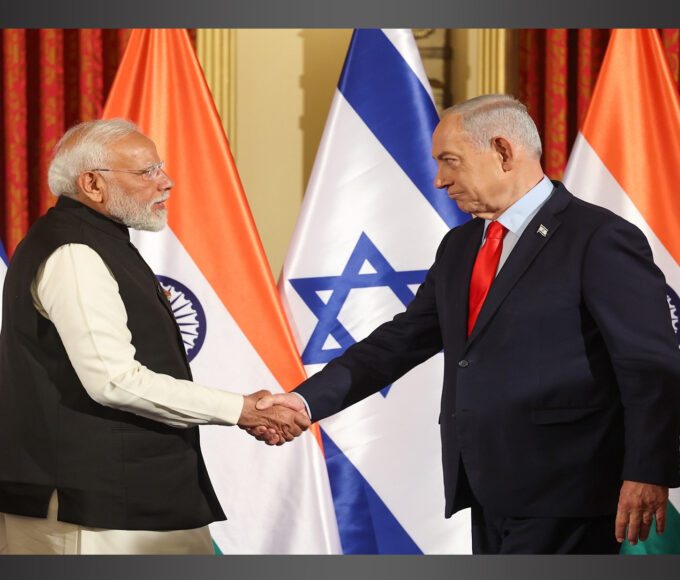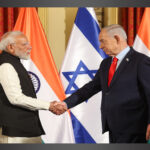HISTORY seems to be repeating itself in the corridors of power in New Delhi. Three decades back, as Rajiv Gandhi was trying to usher in a new paradigm of governance based on his massive parliamentary majority, several spy cases rocked the Central Secretariat. Now, the Naya Daur regime of Narendra Modi, the first leader after Rajiv Gandhi to enjoy a clear mandate in Parliament, has come under the cloud of spying. In 1985, the spying was triggered by foreign interests and mainly centred around the Defence Ministry. Now, in the aftermath of the 1991 reforms, the spying is no longer of global ramifications alone, it has a ‘Make in India’ tag-corporate entities are trying to gain a competitive edge by ferreting out sensitive information.
Newspapers are full of reports about the steps “initiated” in the aftermath of the recent Shastri Bhawan arrests to curb spying. The Cabinet Secretary has emphasised that secret files are to be handed over in person by the officer either to his concerned superior or to his designated subordinate officer. This is nothing new. Rules warrant that movement of secret files should not follow the ‘normal routine’, that is, handled by PAs, stenos and peons.
The Coomer Narain case in January 1985, which caused the resignation of the then Principal Secretary to the Prime Minister, Dr PC Alexander (as his personal staff was involved), had led to clear instructions regarding the use of photocopiers. Machines in the PMO and even in Rashtrapati Bhavan had been used then. As in 1985, the Shastri Bhawan scam in February 2015 is centred around reprography equipment. The Coomer Narain case brought disrepute to an Ahmedabad firm, SLM Maneklal. The office of the company in New Delhi, located at Hailey Road, was the focal point of the espionage activity. Documents were passed on to France and to the USSR and East Germany. Yogesh Maneklal was interrogated. In 2015, the names of at least five private companies have surfaced; their employees are in jail. The new dimension is that now former journalists, masquerading as ‘consultants’, are also in the net.
In 1983, Major General FD Larkins and his brother, Air Vice Marshal KD Larkins, were merrily passing on secrets of South Block and Vayusena Bhavan. Movement and deployment of troops, logistics of supplies to sensitive areas like Jammu and Kashmir as also demand projections for equipment were supplied to foreign agents. Along with Coomer Narain, Tihar Jail had another interesting inmate in 1985-a Defence Ministry subordinate, Tika Ram Kashyap, who earned the epithet ‘Clerk who made Crores’.
The government had come out with guidelines for blocking leaks in 1985. It has somewhat modified them to suit the needs of contemporary technology and issued them again in 2015.
In recent years, diplomat Madhuri Gupta and Naval Commander Sukhjinder Singh have been in the news. The former was charged with liaison with a Pakistani while the latter was subjected to a “honey trap” abroad. Some 30 years back, a staffer of the Indian Embassy in Beijing was repatriated because of his indiscreet liaison. This was soon followed by a staffer being flown back from Hong Kong for a similar charge.
While some spies are caught, the Official Secrets Act comes under threat from other methods as well. Some two decades back, an officer of the Revenue Service tipped off a leading business house about an impending raid. He was not part of the raiding party whose mission he compromised. After some days he quit the government and took up employment with his beneficiaries and soon emerged as a key player in that corporate group. After his death, his widow continues to be in the good books of that company. Even political parties are not reluctant to patronise such elements, as events were to prove later. Violation of the Official Secrets Act does not occur due to spying alone-over the past four decades, there has been a practice of getting important matters “cleared” by non-official, extra-constitutional entities. The rot begins at the very top.
The Modi regime will have to usher in game-changing reform in the security system to curb spying. The move for paperless Cabinet meetings by assigning Kindle units to ministers and redepositing them with the Cabinet Secretariat post-meeting is a right step, perhaps.
The author is a former editor of national publications who has served in the erstwhile Planning Commission as well as in the corporate sector.











































